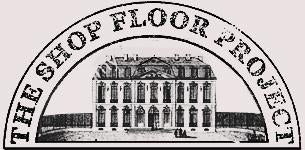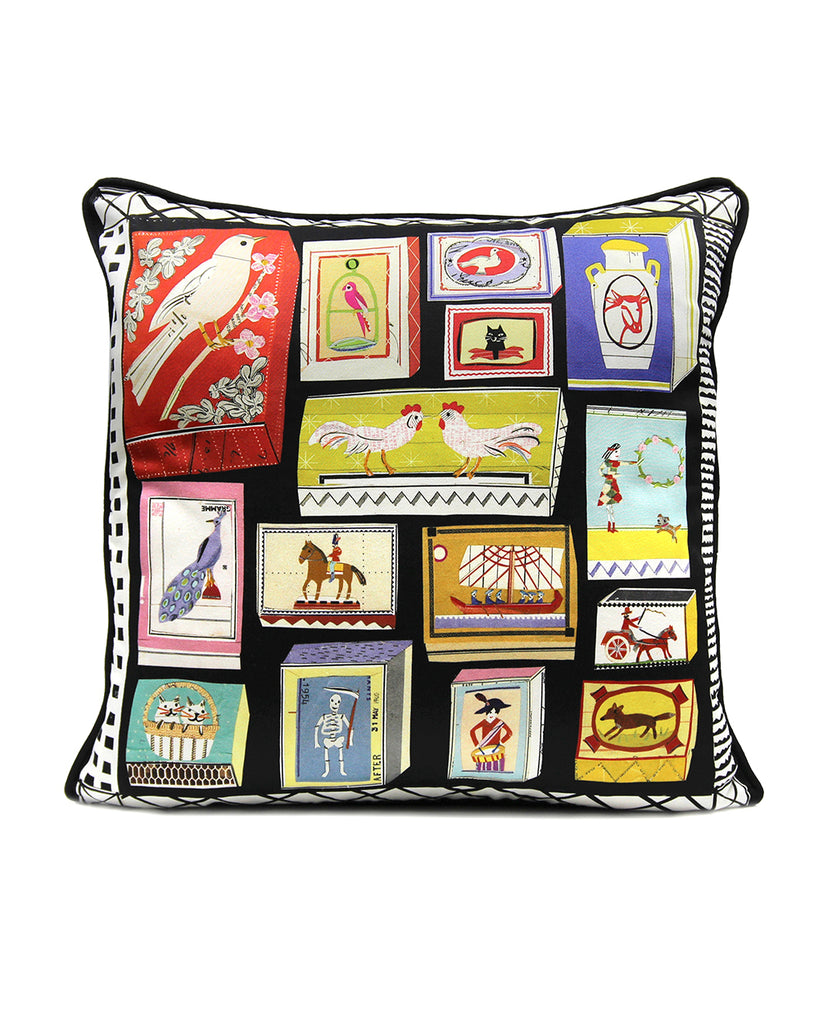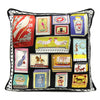Product Details
A new collection of cushions featuring Sarah Battle's paper-cut collages.
Each cushion comes with an artist's tag.
Printed onto 100% organic cotton sateen with black reverse.
Black piped edged, zip fastening.
Includes recycled polyester eco fibre fill - made from post consumer PET plastic bottles, allergy friendly and fully recyclable.
Dry clean cover only.
Size: 45 x 45cm (17.7 x 17.7 inches).
"This paper quilt was created after I was given a family collection of matchbox labels, gifted to me by the great-great grandson of the founder of Peek Frean Biscuits. I was attracted by the scope, variety, and oddness of these anonymously made pocket-sized disposable artworks, and inspired by their careful archiving by a keen collector. The fifteen matchbooks on the quilt were the ones that immediately caught my attention amongst this wealth of graphic imagery."
TAKE A TOUR AROUND THE ARTWORK
THE STORY

Can you hear it? The rhythmic snip, snip, snip coming from the studio of Sarah Battle, nestled high up in the attic of an 18th century weaver’s cottage in the West Yorkshire hills. It’s a song that has been singing for many years.

This is a paper-cut artist who has been creating collage-works since her early days at the Royal College of Art in the late 1980’s. Since then she has been cutting a swathe through each decade, creating works for textile designers and a multitude of other products, rarely resting her trusty scissors.

In a new set of work for The Shop Floor, Sarah Battle has applied her processes of collage and paper-cutting to the traditions and culture of quilting. Creating ten ‘Paper Cut Quilts’, each one is full to bursting with the most magical imagery. Themed around a particular idea, the quilts are ennobled with titles such as The Quilt of Cleaning (which features brushes, buckets and ladders), The Quilt of Hallmarks, Quilt of Medals, Matchbox Quilt and so on.

The motifs that populate the ‘quilts’ are a kaleidoscopic array of objects, ranging from domestic everyday items to the eccentric and extraordinary. Sarah’s scope is broad; from medals to tin toys, ladders, caterpillars, garden cloches with rows of lettuce, matchboxes, eggs in their nests and even a feather duster.

Individual motifs are precisely positioned within the geometry of the quilt, creating juxtapositions and visual discourses across and around the shared surface. This idea of collecting, grouping, or placing objects in a particular way is something Sarah investigates within her work, be that personal collections, books or the Pinterest feeds of others.

With a background in printmaking and textile design, Sarah often combines these disciplines with drawing, painting, stencilling, lino printing, etching and, of course, paper-cutting.

There is a graphic sensibility within Sarah’s work. It comes from a love of print, typefaces and advertising and from the material she has collected. Boxes and boxes of collected ephemera containing anything from old handwritten cheques, envelopes (a favourite is the printed security linings from bank envelopes), old tickets, adverts and receipt books.

Sarah says that “incidental patterns occur from the snippets of old receipt books, unexpected textures arise from the dotted tones of early commercial printing while fragments of letterpress, typographic and hand-written words add text to the texture”.

This can be seen in the old handwriting from a letter that scrolls across a cat’s back or a cockerel's feathers, or in the way a fragment of calligraphy is used to suggest the tail of a squirrel.

It is the discarded ephemera of our daily lives, cut up and reassembled in the same way as fabric scraps are used in textile quilting, that Sarah is breathing new life into.

Just as a quilt is finished, each collage is finished with borders, lacy or geometric, and hundreds of tiny white dots run along edges, seams and sides to suggest stitches, darning the entire collection together.

These are objects that give instant pleasure, but entice us to look closer. Like exploring the interior of a dollhouse, scale becomes distorted, details shrunken down so a caterpillar is as big as a chair and a watering can bigger than a dove. It’s a magical world, full of joyful details and surprising fragments.






























